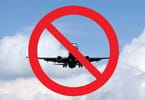Smiths Detection has been chosen to supply innovative solutions for people screening and search functions in Tokyo’s Narita International Airport. Following a national directive from the Japan Civil Aviation Bureau (JCAB) to upgrade checkpoint security to comply with the latest international standards, Narita Airport, along with several regional hub airports, held a formal evaluation of potential solutions and chose to install 13 eqo portals from Smiths Detection.
The new equipment has been operational since March 2017.
Using unique, flat-panel millimetre-wave technology, eqo offers state-of-the-art people detection capability with a minimal footprint. It is a product that allows checkpoints to evolve from mechanical scanning to electronically steered technology. As a result, it offers better image quality and system reliability. In turn, this reliable and easily serviceable system helps reduce the burden of security screening in airports.
Nathan Manzi, Vice President of Asia Pacific at Smiths Detection, said, “More than 20 million visitors entered Japan last year and this number is expected to increase due to the Tokyo Olympic and Paralympic games in 2020. As such, there is increasing pressure on Japan’s international airports to strengthen security while ensuring that passengers move quickly and seamlessly through them. By implementing our solutions, Narita Airport will be able to use more precise scan results, as well as faster operational processes compared to using metal detectors alone.”
“Several other Japanese airports have shown interest in deploying eqo,” Manzi added. “eqo is EU-ECAC Standard 2 approved and already meets the requirements for aviation installations from 2019 and beyond, so customers can be assured that it is a future-proof investment and delivers significant improvement in security, productivity and the passenger experience.”
By implementing eqo, airports have a rapid means of detecting concealed objects using the system’s real-time automated detection interface. eqo’s multi-material detection abilities help to reveal any concealed objects, such as metals, liquids and narcotics, which can compromise the safety of aircraft. Due to its small footprint dimensions, eqo can be easily integrated into existing checkpoints without requiring major alterations to standard layouts and operations.
WHAT TO TAKE AWAY FROM THIS ARTICLE:
- “eqo is EU-ECAC Standard 2 approved and already meets the requirements for aviation installations from 2019 and beyond, so customers can be assured that it is a future-proof investment and delivers significant improvement in security, productivity and the passenger experience.
- Following a national directive from the Japan Civil Aviation Bureau (JCAB) to upgrade checkpoint security to comply with the latest international standards, Narita Airport, along with several regional hub airports, held a formal evaluation of potential solutions and chose to install 13 eqo portals from Smiths Detection.
- Nathan Manzi, Vice President of Asia Pacific at Smiths Detection, said, “More than 20 million visitors entered Japan last year and this number is expected to increase due to the Tokyo Olympic and Paralympic games in 2020.






















